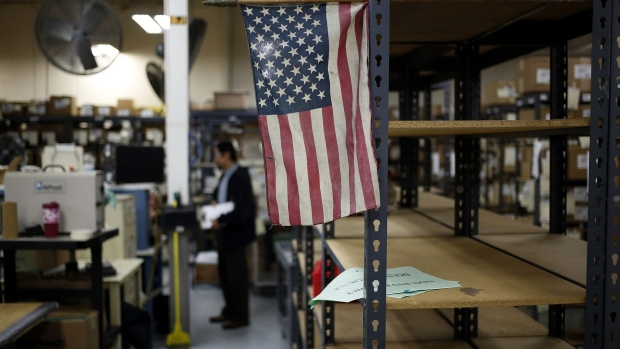Jul 17, 2019
U.S. economy trundles steadily along, outlook positive: Fed
, Bloomberg News

The U.S. economy expanded at a modest pace with job gains slowing somewhat and inflation remaining stable or slightly weaker, a Federal Reserve survey showed.
“The outlook generally was positive for the coming months, with expectations of continued modest growth, despite widespread concerns about the possible negative impact of trade-related uncertainty,” according to the report Wednesday in Washington.
The central bank’s Beige Book economic report, based on anecdotal information collected by the 12 regional Fed banks on or before July 8, said the labor market continued to tighten, putting some upward pressure on compensation. However, some manufacturing and technology firms in the Northeast reduced staff.
The report is unlikely to sway the debate policy makers will have when they gather July 30-31. Officials are widely expected to reduce interest rates by a quarter point, though a handful of regional Fed presidents appear uneasy about cutting rates while their baseline economic outlook remains solid.
Despite the labor market’s continued strength, firms still struggled to pass on higher wages and new tariffs to customers. “Firms’ ability to pass on cost increases to final prices was restrained by brisk competition,” according to the report prepared by the San Francisco Fed.
The Fed’s favorite gauge of inflation showed prices rose just 1.5 per cent in the year through May. Inflation has run persistently below the central bank’s 2 per cent target for most of the past seven years.
Retail, Manufacturing
The Beige Book follows the release of data this week in which retail spending and manufacturing both exceeded economists’ estimates, and a June jobs report showed the labor market rebounded in May. The report noted that sales of retail goods “increased slightly overall” though vehicle sales were flat.
Most Fed officials still predict growth of 2 per cent or higher this year, but say that outlook is threatened by risks related to global trade disputes.
Wednesday’s report said manufacturing in the U.S. was generally flat with a modest pickup in a few districts. Manufacturers in the Boston region said “tariffs and trade policy uncertainty were major issues,” while businesses in Philadelphia said those conditions further delayed investment. Factories in New York and Chicago saw activity decline, though Atlanta’s increased and Richmond’s reported a slight uptick in shipments and new orders.
Though some districts continued to report healthy expansion in transportation, others said activity had declined modestly. Cleveland’s freight haulers saw a modest decline in demand, “and they are concerned about the future.” Richmond’s trucking firms had freight volumes fall below seasonal levels.